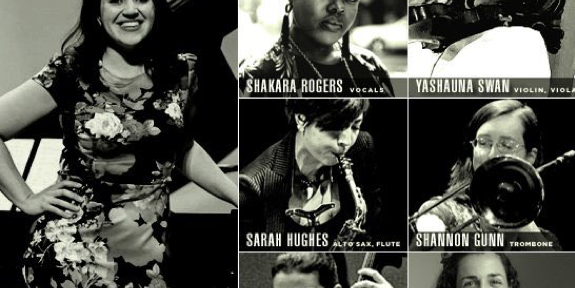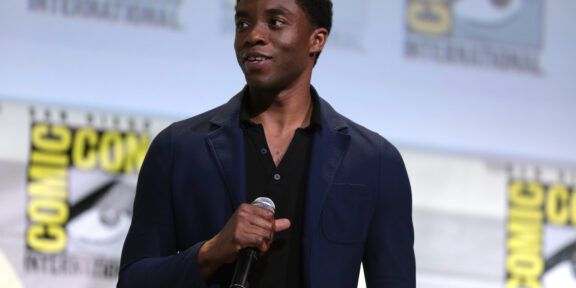Less than five miles from the Lincoln Memorial where a quarter of a million people heard the Rev. Dr. Martin Luther King Jr. deliver the “I Have a Dream” speech in 1963, a crowd gathered almost 50 years later to honor the orator and activist through the words of leading writers.
“The Word: Black Writers on Writing” featured poet Nikki Giovanni, journalist and author Wil Haygood, and Marita Golden, editor of the new anthology “The Word: Black Writers Talk About the Transformative Power of Reading and Writing.”
Centered around words and their strength, which King displayed in his speeches and writings, the event consisted of a panel discussion and a book signing. The National Museum of African American History and Culture sponsored the event to commemorate King’s birthday.
A quick scan of the room in the Smithsonian National Museum of American History revealed a variety of ages, complexions and dress among those in attendance. The diversity of the audience reflected King’s vision, which was also evident in the unified laughter and applause at different points in the program.
Golden, founder of the Zora Neale Hurston-Richard Wright Foundation, opened the discussion by reading the anthology’s introduction. “This is a book about stories,” she said. “An extended meditation in a choir of voices, all remembering and recounting how stories defined and made possible creativity, community and a meaningful life.”
The book features a series of interviews by Golden, author of fiction and nonfiction works such as “The Edge of Heaven” and “Migrations of the Heart,” respectively. The interviewees ranged from Pearl Cleage and Edwidge Danticat to Giovanni and Haygood, both of whom joined Golden in conversation at the museum.
On the importance that reading played in their lives, the writers told of their childhood experiences with words.
“If I wanted to get out of a chore, all I had to do was be some place in the house reading a book,” said Haygood, a reporter at the Washington Post and author of several books including “In Black and White: The Life of Sammy Davis Jr.,” which won the 2010 Hurston-Wright Legacy Award.
Haygood described his humble upbringing in Columbus, Ohio, as one full of support from community members. “Seeing me on the stairs, in the basement with my nose in a book … gave them a great sort of pride.”
Giovanni also spoke on the support that existed in her time, amid segregation. “We couldn’t tell our grandmothers that we couldn’t change the world,” she said. “We grew up in segregation, and our grandmothers kept saying, ‘You’re as good as anybody else.'”
A professor at Virginia Tech, Giovanni has tried to change the world through her poetry. She has published more than 25 books. Her latest, “The 100 Best African American Poems (But I Cheated),” actually features more than 200 poems from the classic Langston Hughes and Amiri Baraka to poets like Kwame Dawes and Reuben Jackson.
The idea that reading and writing must go hand in hand resonated with the panelists and attendees.
“For every poem you write, you should read 100 poems,” said E. Ethelbert Miller, former D.C. Poet Laureate whose poetry books include “Where Are the Love Poems for Dictators” and “On Saturdays, I Santana With You.” Miller is also director of Howard University’s African American Resource Center.
Echoing King’s words regarding passion, “Our lives begin to end the day that we become silent about things that matter,” audience members expressed just how invested they are in writing and the faith they have in reading as a foundation.
“If I teach you how to read a poem well, you can read a newspaper,” Miller said. “You can think critically.”
As the event came to a close, nearly every participant left with a copy of “The Word: Black Writers Talk About the Transformative Power of Reading and Writing.” King’s legacy lived on through words spoken and the unity of both readers and writers, students and teachers.
“I think many of the greatest writers are always challenging some instilled institution set upon them,” said Joshua Moore, a sophomore majoring in economics at Howard University who attended the program. “M.L.K. was doing the same thing.”




